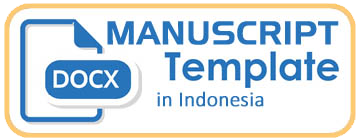MENINGKATKAN EFEKTIVITAS LAYANAN BIMBINGAN DI SEKOLAH DASAR,STUDI KASUS SD GEMIT 027 MEBUNG
Keywords:
guidance services, elementary school, effectiveness, teacher’s roleAbstract
Guidance services in elementary schools play a strategic role in helping students cope with personal, social, and academic challenges. This study aims to describe the types of guidance services provided, common student issues, the role of teachers, implementation barriers, and strategies to improve the effectiveness of guidance services at SD GMIT 027 Mebung. Data were collected through an interview with a classroom teacher who has five years of teaching experience. The results indicate that guidance services are delivered informally and orally. The most frequent issue encountered among students is bullying behavior. Teachers act as role models and facilitators of students’ developmental stages; however, the implementation of guidance services is hindered by a lack of understanding regarding its concepts. To enhance effectiveness, collaboration among teachers, parents, and students is essential, along with the application of age-appropriate guidance methods. This study emphasizes the need to strengthen teachers’ capacities in delivering meaningful and sustainable guidance services in primary education.
Downloads
References
Al-Ghabban, A. M. I. (2022). Teachers as facilitators: Strengthening guidance roles in Saudi elementary schools. International Journal of Educational Development, 93, 102617. (Detail volume / DOI perlu diverifikasi karena belum terindeks terbuka.)
Arifin, Z. (2016). Evaluasi Program Layanan Konseling di Sekolah Dasar. Bandung: Alfabeta.
Center on Positive Behavioral Interventions and Supports (PBIS). (2021). PBIS implementation blueprint (Version 4.0). University of Oregon. https://www.pbis.org/resource/pbis-implementation-blueprint
Collaborative for Academic, Social, and Emotional Learning (CASEL). (2020, October 1). CASEL’s SEL framework: What are the core competence areas and where are they promoted? https://casel.org/casel-sel-framework-11-2020/
Galassi, J. P., & Akos, P. (2007). Strengths-based school counseling: Promoting student development and achievement. Routledge.
Kemendikbud. (2014). Panduan Operasional Penyelenggaraan Bimbingan dan Konseling. Jakarta: Direktorat Pembinaan Sekolah Dasar.
Kurniawan, D. (2023). Model Bimbingan Berbasis Permainan untuk Peserta didik SD. Jurnal Psikologi dan Pendidikan Dasar, 11(1), 22–31.
Limber, S. P., Olweus, D., Wang, W., Masiello, M., & Breivik, K. (2018). Evaluation of the Olweus Bullying Prevention Program: A large-scale study of U.S. students in grades 3–11. Journal of School Psychology, 69, 56–72. https://doi.org/10.1016/j.jsp.2018.04.004
Prayitno. (2015). Layanan Bimbingan dan Konseling di Sekolah Dasar. Jakarta: Rineka Cipta.
Rahmawati, L., & Wahyuni, D. (2021). Peran Guru BK dalam Meningkatkan Kecerdasan Sosial Peserta didik Sekolah Dasar. Jurnal Konseling Pendidikan, 9(1), 45–54.
Sari, Y. P., & Handayani, R. (2019). Efektivitas Layanan Bimbingan Kelompok dalam Meningkatkan Kedisiplinan Peserta didik. Jurnal Bimbingan Konseling, 8(2), 110–119. https://doi.org/10.21009/JBK.08210
Sukardi, S. (2020). Efektivitas Layanan Bimbingan dalam Meningkatkan Kesejahteraan Psikologis Peserta didik. Yogyakarta: Pustaka Pelajar.
Tudge, J. R. H., Merçon-Vargas, E. A., & Payir, A. (2022). Urie Bronfenbrenner’s bioecological theory: Its development, core concepts, and critical issues. In K. Adamsons, A. Few-Demo, C. Proulx, & K. Roy (Eds.), Sourcebook of family theories and methodologies (pp. 235–254). Springer. https://doi.org/10.1007/978-3-030-92002-9_16
Yeager, D. S., Hanselman, P., Walton, G. M., Murray, J. S., Crosnoe, R., Muller, C., … Dweck, C. S. (2019). A national experiment reveals where a growth mindset improves achievement. Nature, 573(7774), 364–369. https://doi.org/10.1038/s41586-019-1466-y









